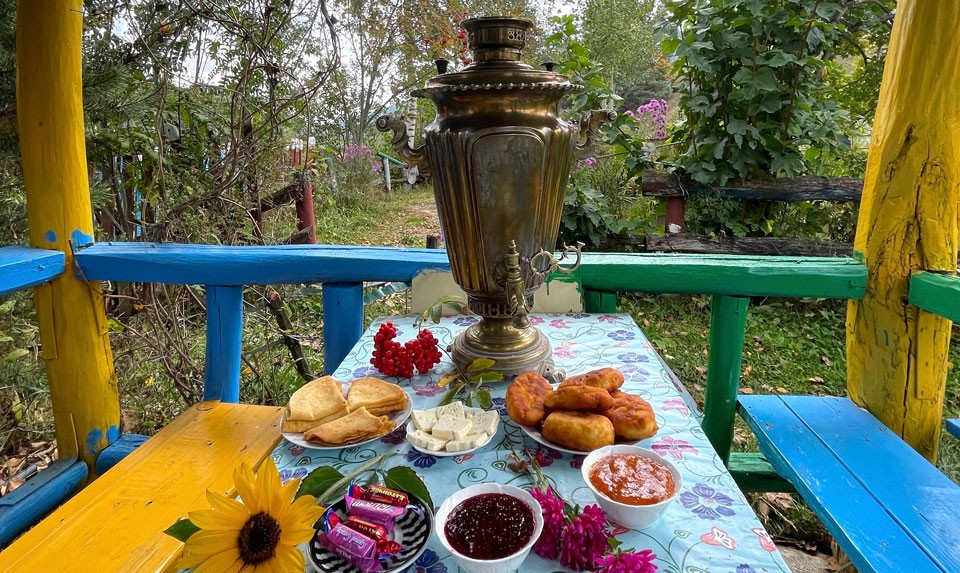Molokans - Adding Ethnic Color To A Homogeneous Armenia
Join Phoenix Tour and visit the Fioletovo village, a home to communites of Russian Molokans in Armenia. Drink tea from the traditional Russian samovar and try some delicious homemade savory cabbage & potatoes pirozhkis!
In only two hour’s drive from Yerevan, you will find yourself in an entirely different world: birches, Russian cottages with risible, golden-haired children running around, and Russian speech heard all over the place. You know you are in Armenia though, with the typical Northern-Armenian mountains around. But if you look at the people and the village, you will see a small real Russian countryside.
Nestled among the mountains north of Lake Sevan, the villages of Fioletovo and Lermontovo in Northern Armenia are home to 1,500-odd Molokans, a Russian Christian sect, which split from Russia’s Orthodox Church in the 16th century and were persecuted under the Russian tsars.
By the early 19th century, the Molokans sought refuge in Armenia and in other South Caucasus countries. Aside from the Lermontovo and Fioletovo, the Molokans also live in Yerevan and Dilijan and they number about 3,000 in Armenia.
The name 'Molokan' means "milk" ("Moloko" in Russian) because it was common for them to drink milk during the abstinence. Another version, more commonly believed, that is their faith is clean as the white milk.
Molokans have rejected the worship of icons and the cross, denied the Church hierarchy and clergy. The main idea is fellowship with God, reading and interpretation of the Bible without intermediaries in the face of the Church and priests. According to the interpretation of the Bible, in which the Molokans invest symbolic meaning, is considered sinful to eat pork, use alcohol, tobacco and drugs.
Molokans live a humble life, they are honest and hardworking. They do not pursue riches, but they most definitely help their neighbors and friends. Their houses are not large nor lavish, but certainly clean and tidy.
Molokans are primarily occupied in cattle breeding and farming, and are well famous for their pickled cabbage. If you’ve ever been to one of the farmers markets in Yerevan, you will have no doubt come across young women and girls with pale skin, red cheeks, and white head scarves, selling pickled cabbage.















